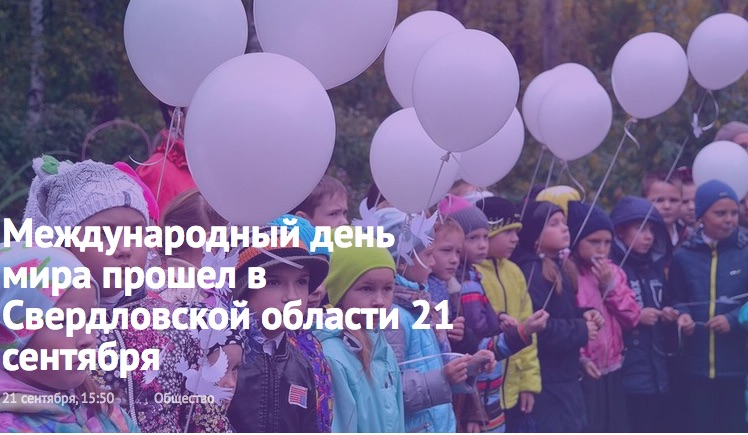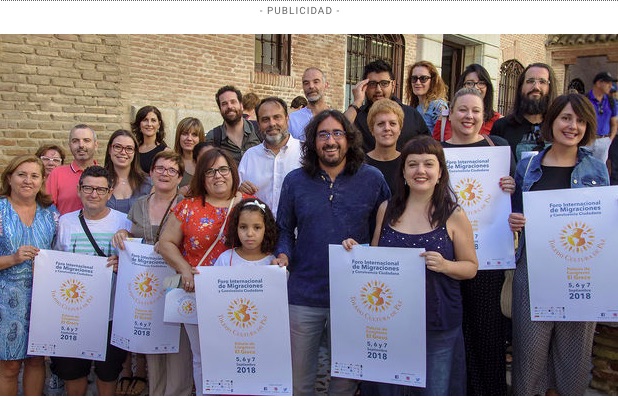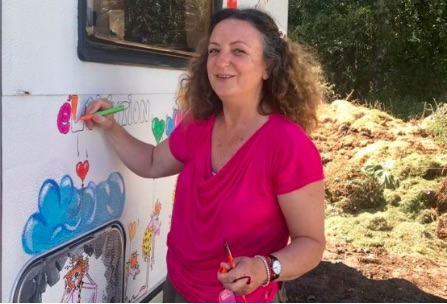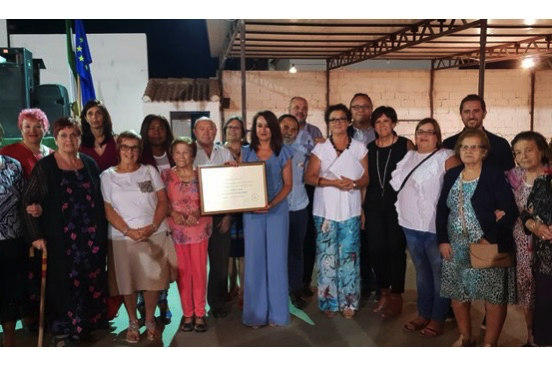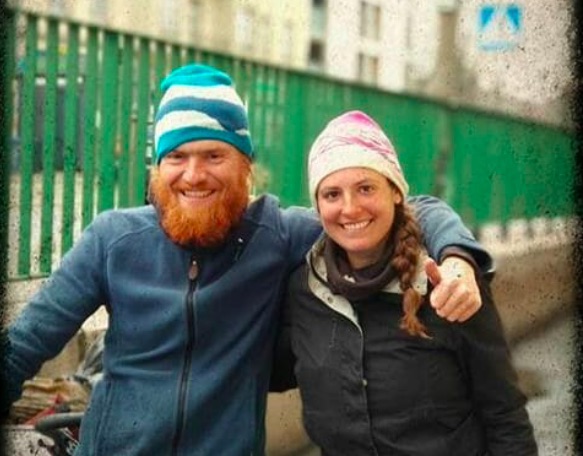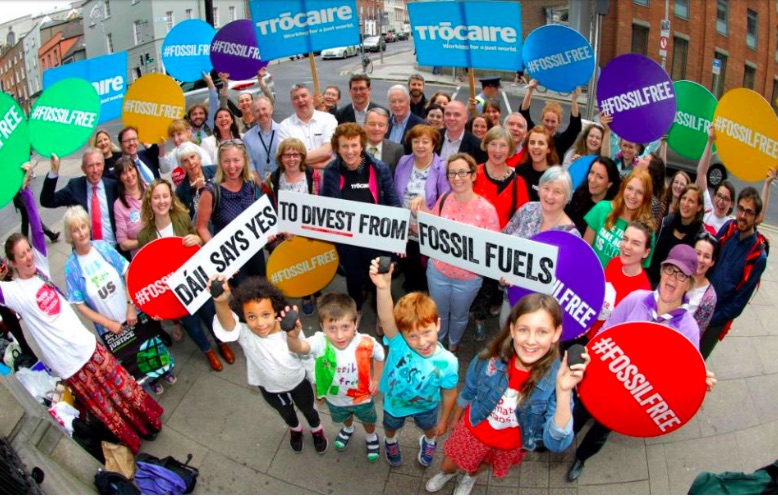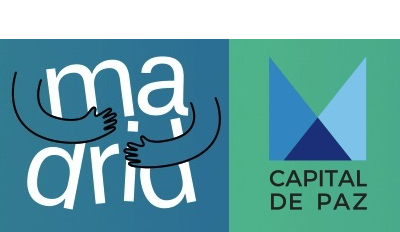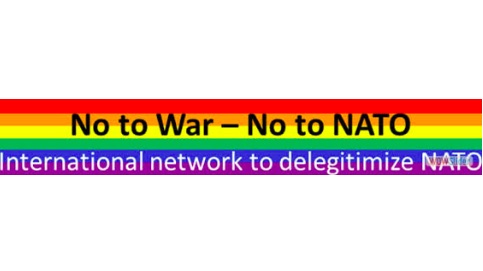FREE FLOW OF INFORMATION
A survey by CPNN
We list here 177 events in 32 European countries, but that does not count several hundred events in the United Kingdom alone for One Day One Choir. The 177 events were listed in Google during the week of September 21-28 under the key words “International Day of Peace”, “Journée Internationale de la Paix”, “Dia Internacional de Paz”, “Dia Internacional da Paz” and “”Internationaler Tag des Friedens” or were listed on the following websites:
– International Cities of Peace Facebook
– UN event map for the International Day of Peace.
– One Day One Choir.
– Montessori schools singing for peace
No doubt there were also many events listed on the Internet in the dozens of national languages in Europe other than those for which we searched.

Concerned about the environment, the mayor of Avesnes-Les-Aubert in France specified in the invitation that the balloons will be biodegradable.
Here are excerpts from the articles.
VIENNA, AUSTRIA: On September 21st, the International Day of Peace, the association Autonomous Austrian Women’s Shelters (AÖF) in cooperation with the European network WAVE (Women Against Violence Europe) takes this opportunity for an event with readings and music in the Gustav Mahler Hall of the Vienna State Opera.
AUSTRIA: Throughout Austria, children and young people celebrated the “International Day of Peace” with Jane Goodall. UN Good News Ambassador Jane Goodall invites children and adolescents from all continents to create and raise peace doves as a sign of world longing for peace on Sept. 21, cease hostilities and engage in peaceful coexistence. Countless children throughout Austria took part in the actions and donated their longing for peace in the form of homemade doves.
MESSINES, BELGIUM: Servas Belgium-Luxemburg and Servas France are inviting to a cross border gathering, for a triple commemoration: the end of First World War; the International Day of Peace (21. september) and the launch of Servas International 70th birthday. This meeting will take place in the nice town of Messines, Belgium.
BRUSSELS, BELGIUM: On Friday, 21 September, various activities will take place at Museumplein / Place musée in Brussels, including DIY workshops, ethnic music concerts, live art, circus, social village, street theatre and garden projects. In addition, a debate on the responsibility to protect and the right to intervene to prevent and stop mass atrocities will be held on Thursday, 20 September.
BRUSSELS, BELGIUM: As part of the International Day of Peace on September 21, the City will host a conference organized by Almouwatin (Citizen, in Arabic). This Belgian media, created in 2015 in the wake of the attacks that struck Europe, will address the themes of exchange and sharing in collaboration and with the support of various Muslim, Jewish, Buddhist, lay, Freemason, Christian associations. The highlight of the evening will be the presentation of the Peace Trophies, which will reward the personalities, projects and associations that have contributed, through their daily actions, to promoting peace and coexistence between the peoples of Belgium and other countries.
MECHELEN, LEUVEN and ANTWERP, BELGIUM:Volunteer “taikoplayers” will perform again in pop-up (flash mob) in Mechelen, Leuven and Antwerp to bring peace into the picture. They play on their Japanese drums (taiko) a japanese creation “Niji matsuri” by Wadaiko Tokara (“niji” means Rainbow!)
NECHIN, BELGIUM: Blog of the communale school of Néchin. On the International Day of Peace, the students will plant an olive tree, as a symbol of the coexistence of all peoples. Each class will participate in its fashion. With many photos.
NICOSIA, CYPRUS: The Association for Historical Dialogue & Research (AHDR) and the Home for Cooperation (H4C), honoring the International Day of Peace for the sixth consecutive year, invite you to join the celebrations at the Home for Cooperation (H4C) on Friday 21st September from 7:30 – 11:00 pm. People from all walks of life are invited to participate in the celebrations which include music by Acoustic 4 Band and DJ Sofronis. Vegan food and beer from ‘Drink for Peace’ will be on sale at the Home Café.
NICOSIA, CYPRUS: Civil society organisations and trade unions are organizing a series of events today to mark the 1st of September World Day of Peace dedicated by the Word Trade Unions Federation to the struggle against facism. 7 trade unions from the TRNC and 1 trade union from the South organised a press conference this morning at the Home for Cooperation in the UN controlled buffer zone. Two groups will be organizing a march to the Presidential Palace at 5pm starting from the Kuğulu Park in Lefkoşa.
PRAGUE, CZECH REPUBLIC: Special screening of the award winning docu-drama ‘The Man Who Saved the World’ plus post-screening discussion with Prof Michal Smetana, Charles University. Few people know of him… Yet hundreds of millions of people are alive because of him. The actions of Stanislav Petrov, a retired Soviet military officer, prevented the start of a worldwide nuclear war and the devastation of much of the Earth. Link to the movie trailer: https://www.youtube.com/watch?v=VaPXVJWHji4
ALLONNES, FRANCE: Friday, September 21, 2018, Allonnes will celebrate the International Day of Peace with music by HK, the presentation of the Culture of Peace Award and the signing of the convention with the New Askar refugee camp in Palestine in association with the League of Human Rights, Céméa, Women in solidarity, ARAC, etc. – 18h: concert with the young talented artists at the “Découverte talents” evening: Tetey (beatbox) and Susanoo (songs)- 18h30: NAKED (in a sphere) (Rock Hip-Hop) – 21h: HK (world, blues, folk and reggae). Free entry. Restoration and refreshments on site.
AMBOISE, FRANCE: “It was in 2014 that we decided to celebrate the International Day of Peace, organized by the United Nations, through the organization of a drawing contest for students in CM1 and CM2” explains Laurence Althès, president of the Innerwheel club of Amboise, at the presentation of awards to 28 students of the private school Sainte-Clotilde, Friday. For this 5th edition, the children, who created a poem and a drawing entitled “Fleur de paix”, received a diploma of Graine d’artiste, a booklet containing the most beautiful drawings made by the schools of the nine districts of the association.
AVESNES-LES-AUBERT, FRANCE: Friday, as part of the International Day of Peace, the town is organizing a reading of poems and a release of balloons. Concerned about the environment, the mayor, Alexandre Basquin specifies in the invitation that the balloons will be biodegradable. The balloons are guaranteed in natural latex with organic color pigments. The town ordered its biodegradable balloons in the colors of the rainbow from a specialized company in Bouches-du-Rhone.
CHALETTE, FRANCE: Friday, exposition “Culture of Peac” by Mouvement de la Paix, followed by a concert with the Franco-Malian group “Imidiwen”; Saturday: Picnic followed by a peace march.
CHERBOURG-EN-COTENTIN, FRANCE: A ceremony is being organized by the Mouvement de la Paix de la Manche, followed by a debate to take place at the salle de la Cité, near the church.
LE CREUSOT, FRANCE: Photos of the celebration of the International Day of Peace as organized in Creusot by the Collective for Peace 21 September {Collectif pour la paix le 21 septembre).
EPERNAY, FRANCE: On the occasion of the International Day of Peace last Friday, the Interfaith Collective of Épernay, composed of local representatives of the three great monotheistic religions, met on a site in the Bernon district. They planted a temporary mast intended to become a tree of peace which “symbolizes the will of all the religious communities represented in Epernay to work together in the community with all the Men of good will, whatever their philosophical or religious convictions. It will be replaced next November by a cedar from Lebanon, chosen to “express the solidarity of the Catholic, Jewish and Moslem communities Sparnacian with the people of the Middle East and all the communities that live there.”
MORLAIX, FRANCE: The Mouvement pour la Paix of Morlaix is organizing a meeting, Saturday 22 September, in front of the City Hall. We will give a petition to the mayor and council members to “Stop the war – Stop the violence – Stop the misery.” This petition and similar actions are being organized throughout France by the Mouvement de la Paix.
PARIS, FRANCE: Friday 21 September is the International Day of Peace. On this occasion, hummingbirds will invade the park of the Villette, in the spirit of non-violent initiatives in favor of the democracy of tomorrow! Objective: Hang 1000 paper birds, hummingbirds and doves, under the Ourcq Gallery, on the edge of the canal of the same name. According to a Japanese legend, making 1000 origamis allows one’s wishes to come true. Ours is that the democracy of tomorrow is open, non-violent and finds new impetus to respond to the challenges of ecological transition.
POIRIER, SAINT-PÈRE, FRANCE: Multi faith prayer and vigil event in the Foret d’Etapes, part of the Morvan, and then a night candle-lit pilgrimage to the Abbaye de Fontenay
RENNES, FRANCE: The Fédération Française Pour l’UNESCO (FFPU) commemorates the International Day of Peace with its members in the UNESCO Clubs of Brittany and its faithful Breton partners: The Regional Council of Brittany, The Academy of Rennes, The City of Rennes, The International House of Rennes (MIR), etc. The program includes a discussion of what is UNESCO, its ideals? its actions? How to act with or within the UNESCO Clubs in your school, and a dialogue with Madam Jocelyne BOUGEARD, Delegate for European and International Relations on the theme “The City of Rennes committed to promoting the Culture of Peace”.
ROUEN, FRANCE: The Institution Sacré-Cœur celebrates the International Day of Peace with several animations, including coloring of paper doves by the children. Participants are requested to dress in white.
SAINT-MARTIN-D’HÈRES, FRANCE: The “cursed” poetry of Gaston Couté and Jehan-Rictus, read and sung by Dominique Glasman. Meeting organized in partnership with the Martinique committee of Mouvement de la Paix, as part of the International Day of Peace.
TARBES and LOURDES, FRANCE: Several events are being organized by the collective “March for Peace.”
TOULOUSE, FRANCE:On the occasion of the International Day for Peace 2018, we organize in many places in France marches, dances and songs for one hour so that each of our steps is a message of Love sent to the world! Join us !
UNIEUX, FRANCE: Concert on the occasion of the International Day of Peace: Presentation by the harmony chorus of Saint-Just Saint-Rambert under the direction of Laurence Payet, as well as by the adult choir of Musi’Val, section of the music school of Unieux under the direction of Pascale Fay.
VÉNISSIEUX, FRANCE: The city of Venissieux with the local committee of the Mouvement de la Paix organized an evening on the occasion of the International Day of Peace with stands, exhibitions, a round table, zongs performed by the Lyon People’s Choir, an aperitif offered by the City and cold restoration proposed by Oyenga Simy Flo and Ymne as well as a folk ball hosted by the Lyon People’s Choir
BERLIN, GERMANY For the International Day of Peace on September 21 the International Peace Bureau (IPB and the IPB Youth Network are organising together with NatWiss a public event on the challenges to peace, as well as a working meeting with several NGOs and stakeholders active in peace.
BONN, GERMANY: Theatre: exchange of letters during the First World War
DRESDEN, GERMANY: In Dresden on the international day of the peace a wide alliance has been mobilized for a demonstration in front of the Frauenkirche on the Dresden Neumarkt, including FbK (peace movement nationwide coordination), Reminder for Peace Dresden, Dresden Peace Initiative and as a novelty the #aufstehen red flag group.
OSTHOLSTEIN, GERMANY: For the International Day of Peace on Friday, the bells rang in more than 20 communities in Ostholstein.
RATINGEN, GERMANY: As in previous years, the Ratingen Peace Network, in which the Ratingen Group is also involved by Amnesty International, organized a public event on 21 September for the International Day of Peace. The author Stefan Weidner gave a talk in the “Haus am Turm” based on his new book “Beyond the West” followed by a discussion.
TROCHTELFINGEN, GERMANY: On Friday, 21 September 2018, Peace service at 18 o’clock in the St. Blasius Church in Mägerkingen.
ARCHAIA OLYMPIA , GREECE: Ancient Olympia’s Municipality is going to celebrate the International Day of Peace on Saturday, 22nd of September 2018, with a Peace March that will start from the “Park of Truce” (next to the archaeological site of Olympia), will continue through the city of Olympia, and will end up in the City Hall’s courtyard, where the Resolution of Peace will be read and signed and a beautiful music event will take place.
SANT’ANNA DI STAZZEMA, LU, ITALY: Invitation to all citizens to come to Sant’Anna di Stazzema for a rally in defense of the values of peace, rights, solidarity, freedom of opinion and all the values of the Constitution
MILANO, ITALY: “The Italian Youth Association for UNESCO, the Lombardy Committee, organizes the event” Peace and War through the lenses of photography “on 22nd September 2018 at 4.30pm in Milan. This is a dialogue in “Artist talk” mode developed in collaboration with the Municipality of Milan and Palazzo Moriggia Museum of the Risorgimento, as part of the International Day of Peace organized by the United Nations. We will have the pleasure of hosting Davide Monteleone, winner of numerous prizes, currently residing in Russia, and the German photojournalist Kai Wiedenhöfer, whose artistic focus deals with the theme of walls that separate nations and cities for unresolved motivations ranging from politics to religion and to the economy.
GRAND-CHÂTEAU OF ANSEMBOURG, LUXEMBOURG: Exhibitions, workshops and theatre celebrating peace, heritage and the rapprochement of cultures
SKOPJE, MACEDONIA:Public kindergarten “8 March”, Skopje, Macedonia. We will play, sing and draw. We will send a message to all adults around the world that children have the right to a peaceful sleep, freedom, education, fulfilled childhood with laughter, joy and well-being.
MIDDELBURG, NETHERLANDS: A conversation about peace, organized by University College Roosevelt, on this International Day of Peace in collaboration with Barbara Oomen, Anya Luscombe and their students at UCR (University College Roosevelt). The theme will be: “Standing Up for Human Rights”.
DeVLIERHOF, NETHERLANDS: We’re inviting applications for the 5th training for youth workers by Towards a Nonviolent World. Download the call for application here. The online phase will start late August, the training will be from September 17-23, 2018. (arrival 16th, departure 24th, or 23rd after 18:00!). It will take place just across the border of The Netherlands with Germany in a village called “Keeke” at “De Vlierhof”, 30 min. from the airport of Dusseldorf/Weeze.
(Survey continued in right column)
What has happened this year (2018) for the International Day of Peace?
(Survey continued from left column)
DĄBROWA GÓRNICZA, POLAND: The Event is organized in cooperation between MasterPeace Poland and MasterPeace Mexico. ACT! will be one of the largest global initiatives tackling ‘Artistic Expression’ Around the #SDGs ( Sustainable Development Goals ): photo exchibition, video project, choir performance, painting walls, peace talks and party.
BELMONTE, PORTUGAL:In order to celebrate International Peace Day, the Municipal Library and Municipality of Belmonte will provide a set of activities on September 21, in which everyone can participate, including a film session and a walk through emblematic sites of the village of Belmonte with a recitation of poems about peace. Note: In all activities participants should be dressed in a white garment.
SOURE, PORTUGAL: The Portuguese Council for Peace and Cooperation (CPPC) will participate at 3:00 p.m. on September 21 at an event for the International Day of Peace in the Hall of the Town Hall in Soure. In this session, which is part of the São Mateus Festivities, promoted by the municipality, which will be attended by the mayor of Soure, Dr. Mário Jorge Nunes and the president of the National Directorate of CPPC, Ilda Figueiredo, will inaugurate the exhibition “For peace, for security, for the future of humanity!”.
BELEM, LISBON, PORTUGAL The International Human Rights Observatory (OIDH) will organize a ceremony to mark the International Day of Peace, at the Cultural Center of Belém. After the opening of the event, a video will be projected by UN Secretary-General António Guterres, alluding to the event. Several national and international entities will be present, including personalities representing different sectors of the structure of the Portuguese State, as well as international individuals belonging to the Diplomatic Corps.
COIMBRA, PORTUGAL: At the Rainha Santa Isabel College, the International Day of Peace was celebrated in the Community as Architects of Peace and Caregivers of the World!
ABELHEIRA, PORTUGAL:The Social and Cultural Center of Carreço organizes tomorrow, September 21, an event to celebrate the International Day of Peace, in the church of the Holy Family, in Abelheira. The festive meeting begins at 2.30 pm with performance by the Senior Academic Choir / CER, followed by a recital of Portuguese guitar poetry by Rui Amendoeira.
RIO MAIOR, PORTUGAL: The city of Rio Maior returned today, September 21, to be the stage, of a set of initiatives to mark the “International Day of Peace”. Once again with Antonio Maior Fróis as mentor, and with the support of a vast group of organizations, schools and associations of Rio Maior, the initiative began by gathering, in the morning, the students of the various educational establishments of the city to draw with their bodies a symbol of peace in one of the training camps of the Sports Complex. During the afternoon the message of peace was continued in the Municipal Garden in an event attended by the Mayor of Rio Maior, Isaura Morais, and the councilors Lopes Candoso and Miguel Santos, among others, including the world champion of the 50 km march, the Inês Henriques, who was this year the godmother of the event. A moment of reflection and peace ended this important day, with the participation of Christian communities, school directors, leaders of cultural associations, Red Cross, Volunteer Firemen, Scouts and the Rotary Club of Rio Maior.
BUCHAREST, ROMANIA: Free launch of e-book “Home to Gaia: A Journey to Peaceful Sleep” an illustrated storybook for all ages, linking inner and outer peace. Available on Kindle.
PLOESTI, ROMANIA: MasterPeace Ro Association participated in the International Day of Peace, involving 30 schools from across South Eastern Romania with more then 3000 pupils, 100 teachers and more then 50 volunteers and a combine budget of more then 2500 Euros. The aim was to make youngsters aware of the idea of peace as a state of mind that means being good and respecting others.
NOVI SAD, SERBIA: Screening of the film produced during the Danube for Peace Workshop with online streaming bridge with wicked Wales International Film Festival… more at www.mediaeducationcentre.eu
LAS PALMAS, CANARY ISLANDS, SPAIN: An international Festival of Peace is taking place in Gran Canaria, Spain and Paramahamsa Vishwananda has been invited as one of the main speakers. As a representative from Mauritius, He will take part in the intercultural festivities which hope to unite 194 countries from around the world in a vision of peace and unity through diversity. The event includes parades and different activities with all cultures and religions. Everyone is invited to attend these public events.
LAS PALMAS, CANARY ISLANDS, SPAIN: The “Association for Peace Petra Klein” is organizing an International Solidarity Festival for World Peace – From the Canary Islands to the World for Peace” – Union in Diversity, September 21-23. Within the festival will be held various conferences and workshops not only for adults, but also for young people. In addition, several NGOs from the field of “International Solidarity”, with the focus on the 17 objectives of “Sustainable Development” will be represented with their stands.
CARRIZAL, CANARY ISLANDS, SPAIN: The Municipal Library Agustín Ramírez Alemán of Carrizal welcomes from yesterday and until September 28 the exhibition Books for Peace , announced from the City Council of Ingenio. Framed in the International Day of Peace, the exhibition can be visited during the opening of the center (8:00 a.m. to 8:00 p.m.) and includes the screening of the film Merry Christmas , as well as several events for children and adults.
TUDELA, NAVARRE, SPAIN: The Government of Navarre has held an institutional event in Tudela on the occasion of the International Day of Peace (September 21) in which it has recognized the work of the International League of Women for Peace and Freedom (Women’s International League for Peace and Freedom, WILPF), an organization of which the President of Navarra, Uxue Barkos, has highlighted its “firm, solid and, above all, necessary and essential, structure for work in favor of peace and freedom from a gender perspective ” President Barkos presented the recognition to the Nigerian Joy Ada Onyesoh, recently elected President of the International League of Women for Peace and Freedom, who was accompanied by Carmen Magallón, president of the section in Spain. During the ceremony, part of the exhibition “100 years of WILPF” was exhibited in the courtyard, which covers the main moments and actions that the International League of Women for Peace and Freedom has carried out throughout the world throughout its 100 years of history From tomorrow you can visit the entire exhibition in the same building Castel Ruiz and later will take several educational centers of Tudela.
IRUN, BASQUE REGION, SPAIN: On the Plaze Ensanche of Irun activities carried out by NGOs for the International Day of Peace include:
– Projections of the cooperation projects carried out in the field
– Photographic exhibitions and information panels
– Sale of handicrafts and T-shirts
– Face makeup
– Cooperative games and workshops
ALCOBENDAS, BARCELONA, REGION OF CATALUNYA, SPAIN: Alcobendas will celebrate tomorrow the International Day of Peace with a replica of the World Peace Campaign, which will be attended by the president of the World Association of the Campaign for Peace in Spain , Jose Rodriguez; and the Minister of the Embassy of Japan in Spain, Toru Shimizu. Students of the Occupational Center of the Association of Parents of Students with Disabilities of Alcobendas will release of doves while the Bell of Peace is playing. The commemoration will close with the interpretation of the works ‘O mio babbino caro’, by Giacomo Puccini, and ‘Soñé otra vida de mujer’, by Claude-Michel Schönberg, by María José Santos and Patricia Lorenzo, by voice and by piano, respectively.
BASEL, SWITZERLAND: Kick without shooting? On the occasion of the International Day of Peace and the 30th birthday of swisspeace, three exponents of the sports world and conflict research addressed this question in a discussion at the University of Basel. Bernhard Heusler , former President of FC Basel, Marc-André Buchwalder , CEO of the Scort Foundation and deputy head of the Center for Jewish Studies at the University of Basel, Erik Petry , have discussed the role that sport can play when it comes to one to create a more peaceful world. The discussion was opened by Elisabeth Ackermann , President of the Government of Basel-Stadt.
GENEVA, SWITZERLAND: The 6th edition of the Geneva Peace Talks is organized under the theme “Peace without Borders”. The speakers will share their personal experiences, stories and ideas to highlight their efforts to promote peace that goes beyond borders- be they in the mind, geographic, political or physical boundaries. The Geneva Peace Talks are a public event co-organized by the United Nations Office at Geneva, Interpeace and the Geneva Peacebuilding Platform to celebrate the International Day of Peace.
BRADFORD, UK: We’re celebrating International Day of Peace here at the University of Bradford. We have a rich heritage in the study of peace. Our Division of Peace Studies and International Development maintains an international reputation as a centre for excellence in research, teaching, training and policy engagement, and was one of the first of it’s kind in the world. The Division also boasts one of the six Rotary Peace Centres worldwide, and is a founding member of the Rotary Peace Centres network. The world comes to Bradford; we are extremely proud that our students cover over 50 nationalities. The chance to meet people of different backgrounds and experience is unparalleled and makes PSID a very rich learning environment.
BROMLEY, UK: Bromly Peace Council Peace Day Event: Come along to enjoy speakers, readings, music, stalls, films, therapies and refreshments.
BELFAST, NORTHERN IRELAND, UK: You are invited to Belfast City Council’s celebration of International Day of Peace 2018. Our keynote speaker will be the Rev. Trevor Williams, retired Bishop of Limerick and former Leader of the Corrymeela Community who will speak on the subject of peace building and reconciliation, 20 years after the Belfast/Good Friday Agreement. The event will include an art installation on the theme of ‘wishing on a star’, which will involve 10 different community groups working with the Community Arts Partnership, who will animate the Rotunda in the City Hall for the event. There will also be music by Ciaran Lavery, The award-winning singer-songwriter from Aghagallon in County Antrim, Ireland who has been decorated at home by the Northern Ireland Music Prize (for his 2016 album ‘Let Bad In’) and has totted up over 80 million streams on Spotify during his five year solo career.
DUNDEE, UK: 2018 International Day of Peace talk at the University of Dundee: democracy and security in the small west African state: a post-Yahya Jammeh’s perspective of the new Gambia. The 2018 International Day of Peace talk is organised by the Centre for Global Culture and Public Diplomacy, a new initiative for this purpose, Dundee Africa Research Network (DARN), reputed for its periodic talks on African research and the Institute for Social Sciences (ISSR), known for its drive in promoting interdisciplinary research within the School of Social Sciences in the University of Dundee.
LONDON, UK: A concert will be given at Lauderdale House in Highgate at 8pm and will feature folk and traditional music from countries currently affected by conflicts. It will be given by the World Harmony Orchestra, an international ensemble performing for peace and humanitarian causes. They will be joined by soloists from Syria and Iran.
MONMOUTHSHIRE, UK: ‘Ways to Peace’ is a multicultural peace festival, which will celebrate the ideals instilled through UNESCO’s International Day of Peace. Running for three days at Tintern Abbey (from the evening of 21 to 23 September), it will focus on three themes: peace with nature, inner peace, and peace between people.
GLASGOW, SCOTLAND, UK: Multiple cultural groups will come together at Auchenshuggle Woods, to share traditional drinks and snacks and celebrate Peace Day 2018. As well as good food, we will have crafts, music and outdoor activities to try. Set to be a great event, taking place in the peaceful surrounds of a beautiful woodland.
BELFAST, NORTHERN IRELAND, UK: This event will mark International Day of Peace 2018 and demonstrate the Council’s commitment to building Peace and Reconciliation in the city. 2018 also marks the 20th Anniversary of the signing of the Belfast/Good Friday Agreement. The event will include a seminar with various speakers, and art installation on the theme of ‘wishing on a star’ which has involved hundreds of people across the city. This installation will animate the Rotunda in the City Hall from 15 Sept. We will also have a giant Peace symbol on the front lawn which will be filled with Peace related events all day. During the morning seminar we will discuss the new Good Relations Strategy for the City and Ciaran Lavery will perform live in the Great Hall, City Hall.
In addition to the above events, One Day One Choir lists participating choirs for the International Day of Peace in :
Albania (TIRANA)
Austria (SALZBURG)
Belgium (BRUSSELS, UCCLE)
Croatia (STARO PETROVO SELO, DRNIS)
Czech Republic (PRAGUE)
Denmark (COPENHAGEN, NORRESUNDBY)
France (BEAUNE, PARIS, DOMPIERRE)
Germany (NEUSTADT AN DER WEINSTRASSE)
Greece (THESSALONICA)
Ireland (CORK, DINGLE, DOOLIN, DUBLIN, DUNDALK, LOUTH)
Italy (VENICE, ROME, PISA, ASSISSI)
Latvia (RIGA)
Lithuania (KURSENAI)
Luxembourg
Macedonia (SKOPJE)
Montenegro (KOTOR)
Netherlands (AMSTERDAM, THE HAGUE)
Norway (KOLBOTN)
Portugal (ALMEIRIM, LISBON, TAVIRA)
Romania (CLUJ-NAPOCA)
Serbia (KRUSEVAC/SRBIJA, POZAREVAC, BELGRADE)
Slovakia (SOLIVAR, BRATISLAVA)
Spain (SANT PERE DE RIBES, ASTURIAS, MURCIA, MADRID)
Sweden (STOCKHOLM, GOTEBORG)
Switzerland (WALLISELLEN, NEUCHATEL, GSTAAD, PULLY, ZURICH)
Turkey (ISTANBUL)
UK (approximately 200 entries)
And the map of Montessori schools singing for peace on the International Day of Peace includes schools in:
Bosnia and Herzegovina (BANJA LUKA)
Czech Republic (BRNO, PRAGUE)
Finland (HELSINKI)
France (QUIMPER, PARIS, EYJEAUX, GIERES)
Germany (RHEINLAND-PFALZ, MUNSTER, HESSEN, HEIDESHEIM, ZIRNDORF)
Hungary (BUDAPEST)
Ireland (CORK, CARLOW, GOREY, PORTLAOISE, ATHLONE, TRALEE, LONGFORD, STAMULLEN, DUBLIN, ARDEE, DRUMNAHOE)
Italy (MANTOVA)
Lithuania (VILNIUS)
Norway (TONSBERG, KOLBEINSVIK)
Poland (WARSAW)
Romania (BUCHAREST, CORBEANCA, LASI)
Serbia (BELGRADE)
Slovenia (LJUBLJANA, MARIBOR)
Spain (MADRID, VALENCIA)
Sweden (STOCKHOLM)
Switzerland (ZURICH)
UK (GLASGOW, EDINBURGH, BRIGHOUSE, LONDON, CARDIFF, EXETER, SPARKWELL, POOLE, SOUTHAMPTON, BRIGHTON, HYTHE, BATH, LETCHWORTH, HOCKLEY, GUILDFORD SURREY, KENT)
